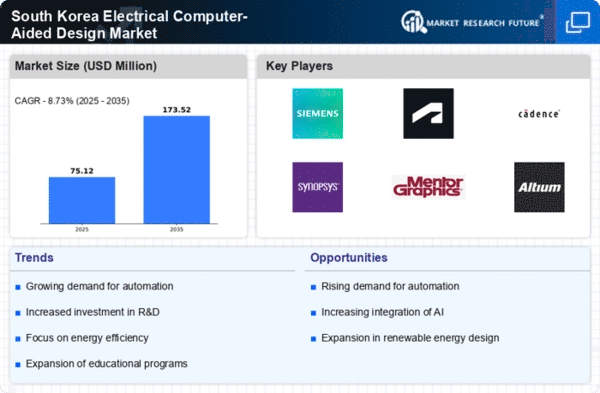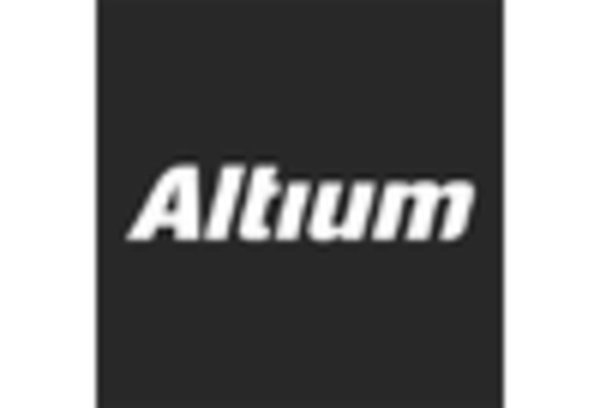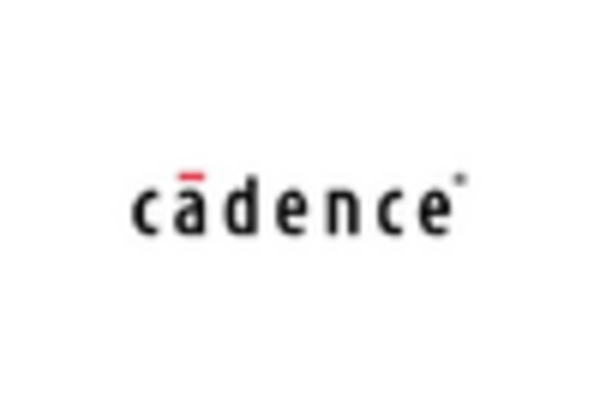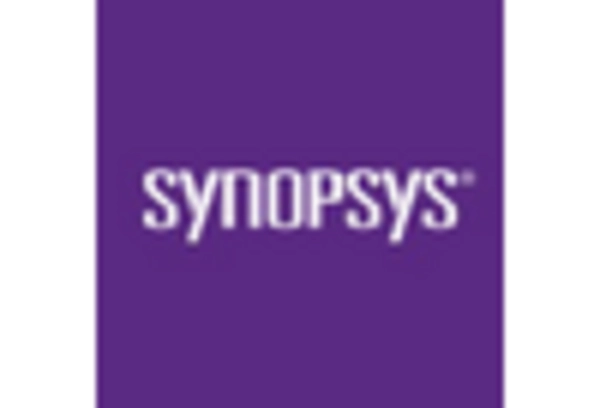Government Initiatives and Support
Government initiatives in South Korea are playing a pivotal role in the growth of the electrical computer-aided-design market. Various programs aimed at promoting technological innovation and digital transformation are being implemented. For instance, the South Korean government has allocated substantial funding to support research and development in engineering technologies. This support is expected to enhance the capabilities of local firms, thereby increasing their competitiveness in the electrical computer-aided-design market. Furthermore, the government's focus on fostering a robust digital economy is likely to create a conducive environment for the adoption of advanced CAD tools, potentially leading to a market growth rate of around 7% in the coming years.
Rising Demand for Automation in Design
The increasing demand for automation in design processes is significantly influencing the electrical computer-aided-design market. Industries are seeking to streamline operations and reduce human error, which has led to a greater emphasis on automated design solutions. In South Korea, sectors such as manufacturing and construction are particularly focused on integrating automation into their workflows. This trend is expected to drive the electrical computer-aided-design market, as companies invest in software that facilitates automated design tasks. The market could see an increase of approximately 6% in revenue as businesses recognize the benefits of automation in enhancing productivity and efficiency.
Technological Advancements in CAD Software
There is a surge in technological advancements in the electrical computer-aided-design market, particularly in software capabilities. Enhanced functionalities such as 3D modeling, simulation, and real-time collaboration are becoming increasingly prevalent. In South Korea, the demand for sophisticated CAD tools is driven by the need for precision and efficiency in design processes. The market is projected to grow at a CAGR of approximately 8% over the next five years, reflecting the increasing reliance on advanced software solutions. As industries such as automotive and electronics continue to evolve, the electrical computer-aided-design market is likely to benefit from these innovations, enabling designers to create intricate and highly efficient designs.
Growing Emphasis on Training and Skill Development
As the electrical computer-aided-design market evolves, there is a growing emphasis on training and skill development among professionals. Educational institutions in South Korea are increasingly incorporating CAD training into their curricula, ensuring that the workforce is equipped with the necessary skills to utilize advanced design tools effectively. This focus on education is likely to enhance the overall competency of designers and engineers, thereby driving demand for sophisticated CAD software. The market may experience a growth trajectory of around 5% as a result of this increased emphasis on skill development, which is essential for keeping pace with technological advancements.
Expansion of the Electronics and Automotive Sectors
The expansion of the electronics and automotive sectors in South Korea is a key driver of the electrical computer-aided-design market. As these industries continue to innovate and grow, the demand for advanced design tools is expected to rise correspondingly. The automotive sector, in particular, is undergoing a transformation with the advent of electric vehicles and smart technologies, necessitating the use of cutting-edge CAD solutions. This trend is projected to contribute to a market growth rate of approximately 9% over the next few years, as companies seek to enhance their design capabilities to meet the evolving demands of consumers and regulatory standards.
















